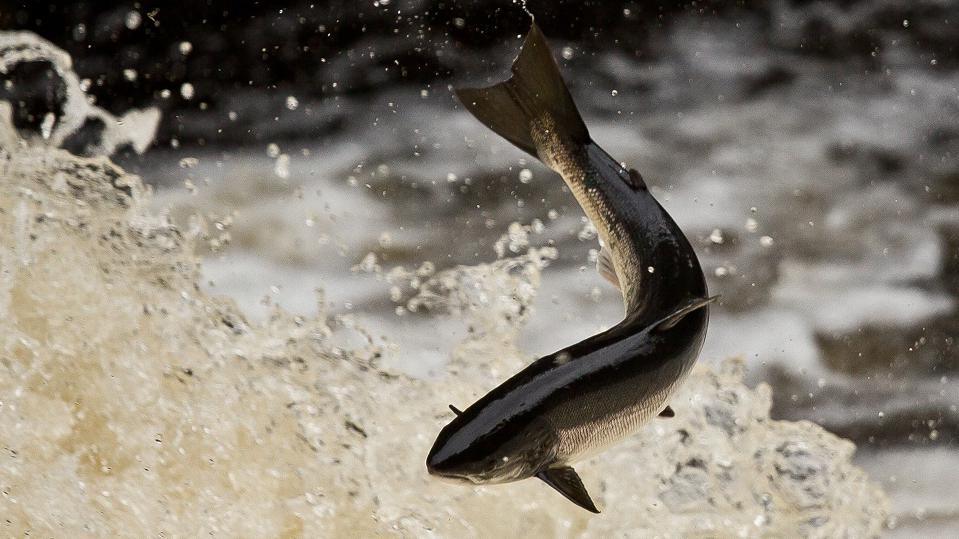Study into climate effects on Atlantic salmon

At a glance
New research is examining the impact of climate change on migratory Atlantic salmon
Scientists in Scotland and Canada are working on the study
They are looking at how different populations may be responding to changes in marine and freshwater conditions
Numbers of salmon returning to Scottish rivers have been in decline since at least 1971
- Published
Scientists are investigating the effects of climate change on Atlantic salmon.
University of the Highlands and Islands (UHI) researchers are working with the Department of Fisheries and Oceans in Canada to study the genetic make-up of the fish.
They will also examine how different migratory populations may be responding to marine and freshwater conditions, which can be affected by temperature and rainfall levels.
The scientists believe climate change could be having a significant impact on migration - starting from where young salmon, or smolts, are born to their time feeding and growing in the Atlantic and return to rivers to spawn.
Vulnerable populations
Numbers of Atlantic salmon returning to Scotland's coast have been declining since at least 1971, according Scottish government designate Marine Scotland, external.
It said approximately half of assessed salmon stocks were in poor conservation status.
Dr Samantha Beck, of Inverness UHI, said the study would help conservation efforts target the most vulnerable populations.
Brian Shaw, director of the Highlands' Ness Salmon Fishery Board, said: “Anyone who has fished for, or studied, salmon knows that the one constant is that the runs are always changing.
"Historical run patterns have been identified but will these trends persist, given the happening, and predicted, changes in climate?
"This study is very timely and will help our understanding of the factors controlling this important aspect of Atlantic salmon ecology.”